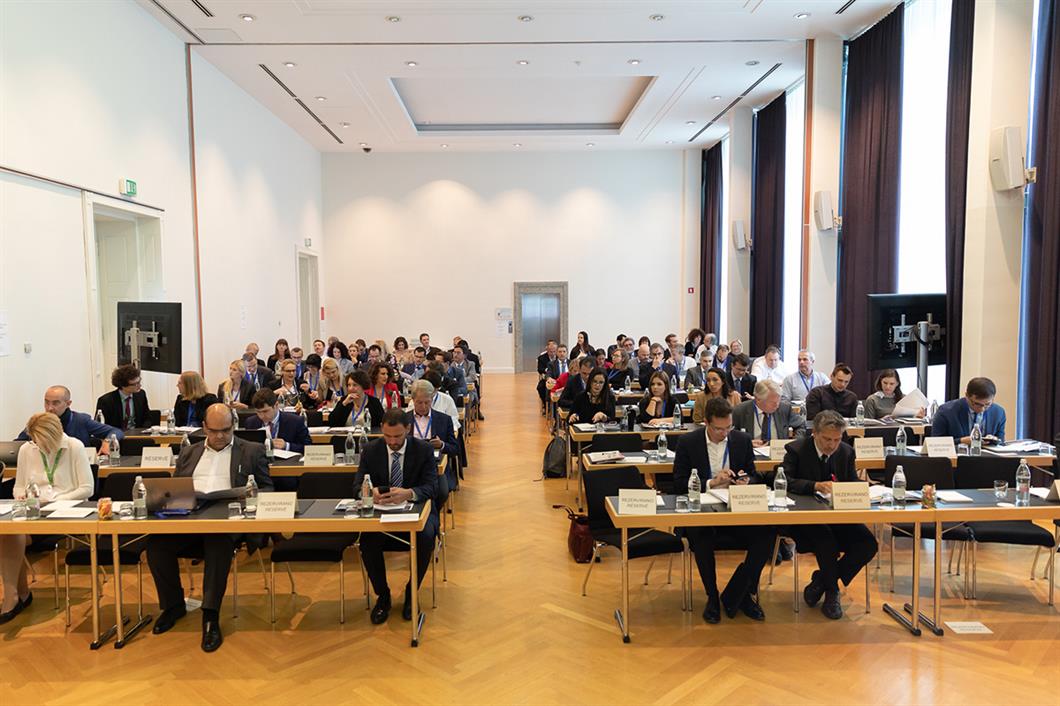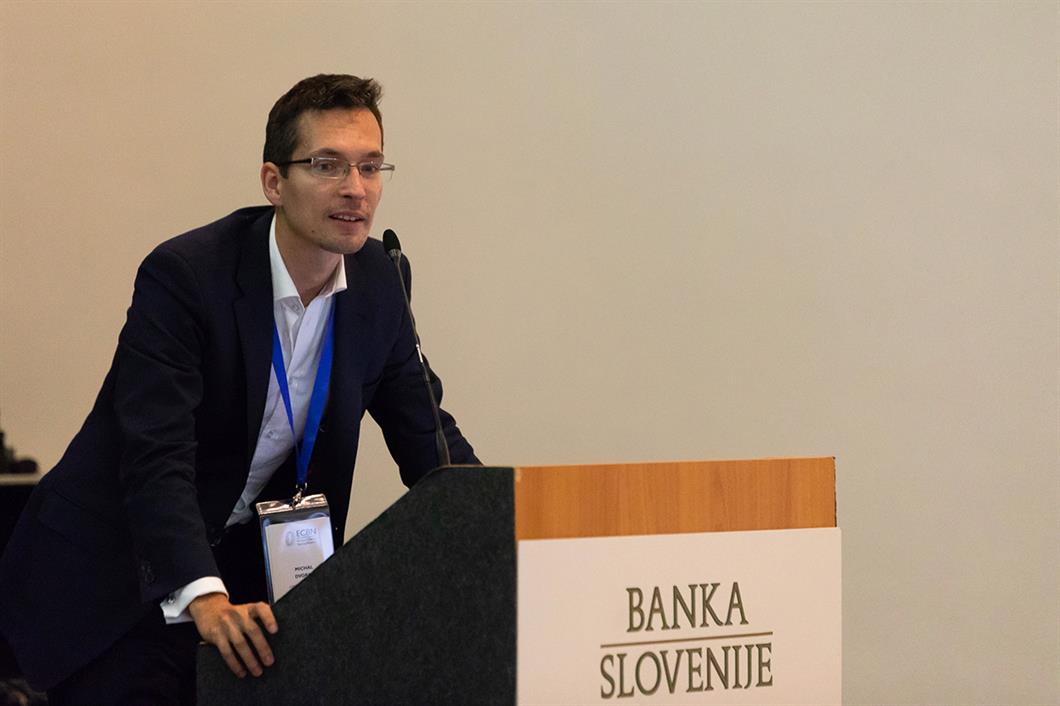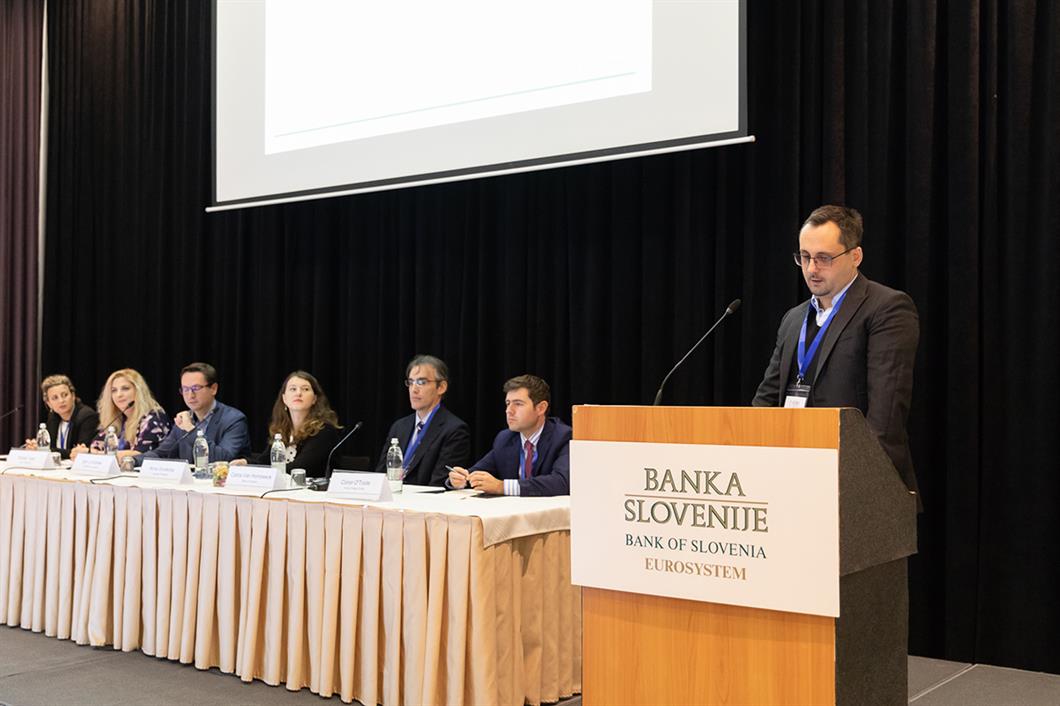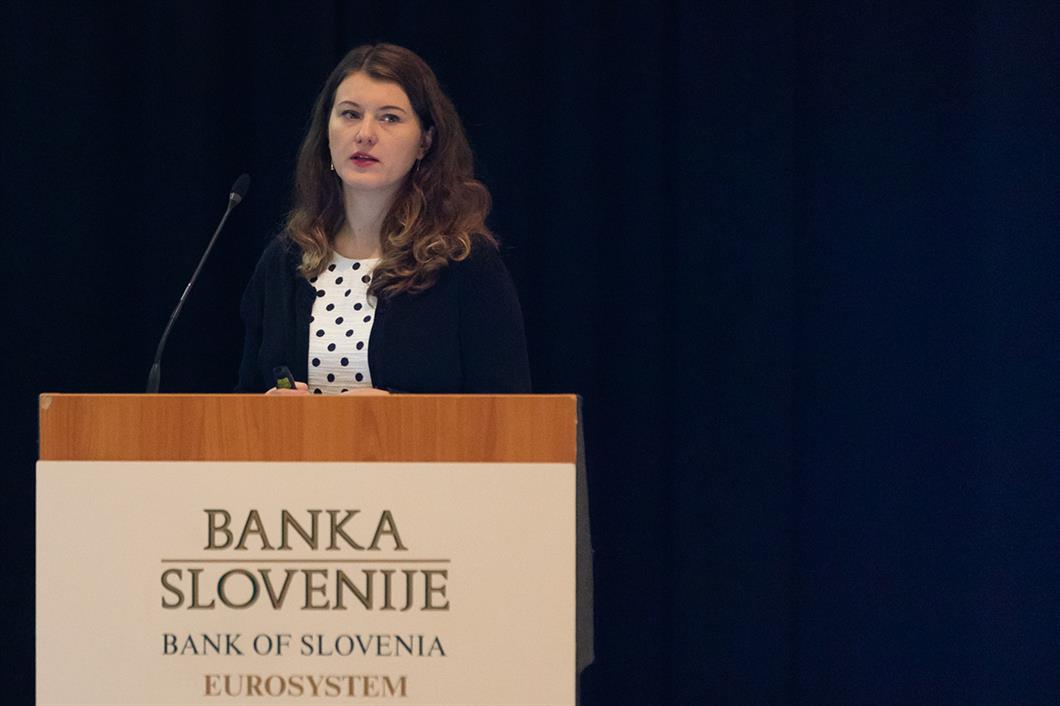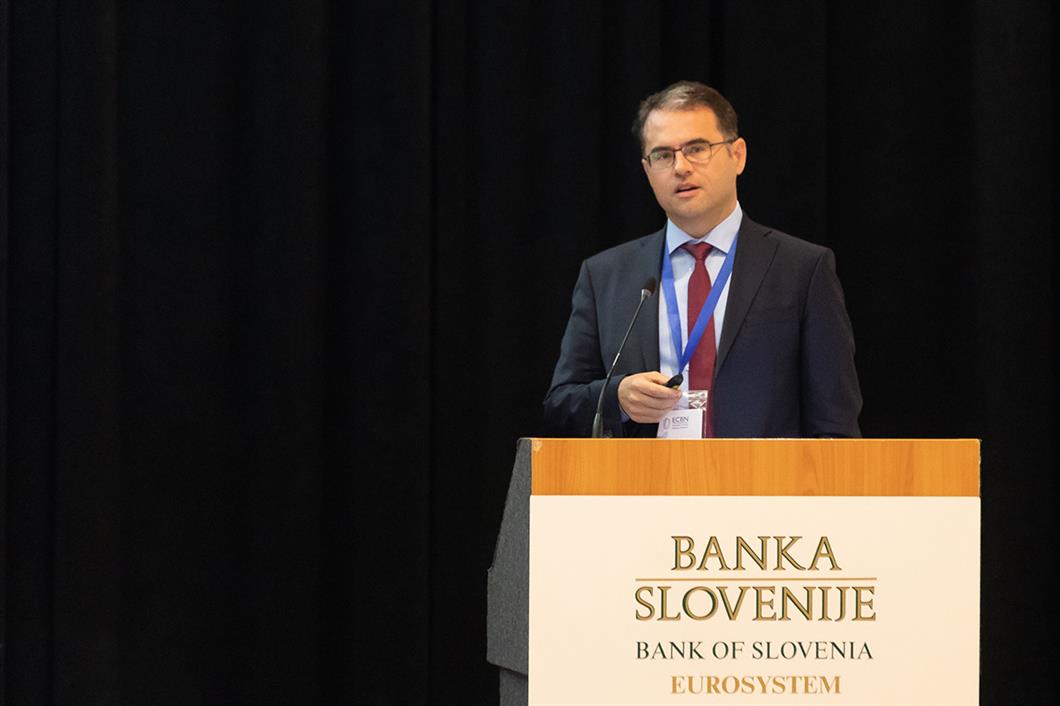4th International Conference of the ECBN: Cross-border aspects of macroprudential policy
On 18 and 19 October 2018 the Bank of Slovenia organised and hosted the 4th international conference of the European Central Banking Network (ECBN), which was founded by the Bank of Slovenia and the Centre for Economic Policy Research (CEPR). The conference was devoted to the cross-border aspects of macroprudential policy, and featured presentations by experts from 13 different central banks.
The participants were welcomed with an address by Primož Dolenc, deputy-governor of the Bank of Slovenia. In his address he emphasised that when designing macroprudential policy it is necessary to be aware that systemic risks can spread from country to country along different channels, either directly via banks’ exposures to risk in the rest of the world, or indirectly via financial markets and networks. The full address is available on the link below. Another of the speakers was Prof Martin Hellwig, the renowned German economist and head of the Max Planck Institute.
The research presented at the conference offered numerous findings of relevance to macroprudential policymakers. An example of a notable finding was the issue of indirect contagion, which threatens practically all banks in the global financial system without them having an awareness of its dimensions, and which is not addressed to a sufficient extent by existing tools for identifying systemic risks or by macroprudential instruments. Several papers confirmed the hypothesis of the spill-over of the effects of capital-related, liquidity-related and borrower-focused macroprudential instruments to other countries. The effects are most often seen in reduced lending activity in other countries, or in the transfer of riskier activities to the rest of the world. Several authors gave evidence for the success of the coordination of macroprudential policy measures in the European Economic Area, while other papers illustrated the great need for the coordination of measures in the area of financial stability outside this zone. Macroprudential policy and the intensity of macroprudential policy action remain strongly dependent on the current orientation of monetary and fiscal policy. The optimal level of capital buffers is higher in fiscally weak countries than in other countries.
Full address by the deputy-governor



